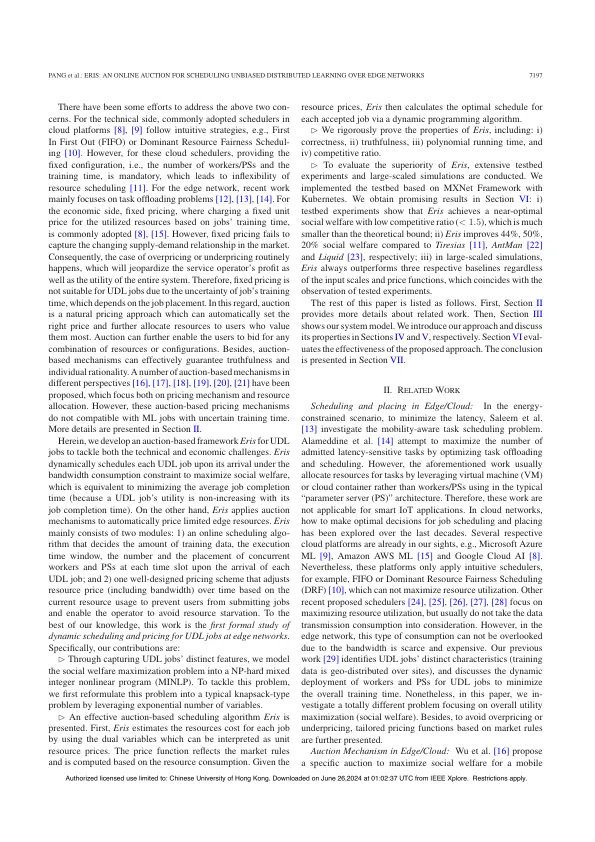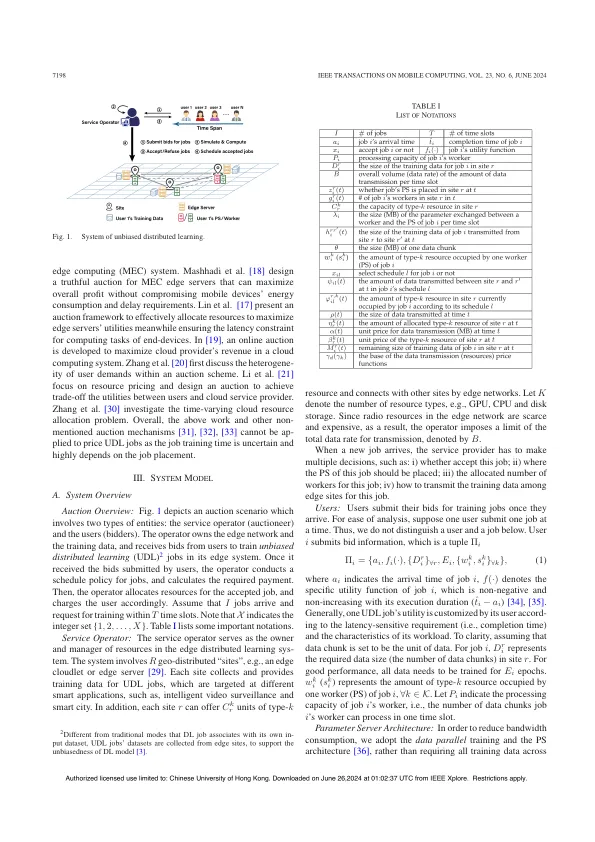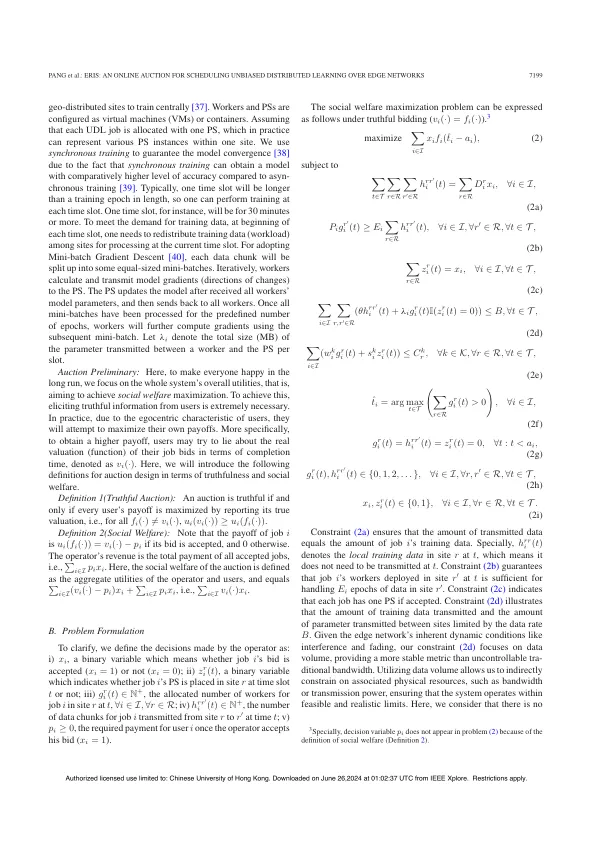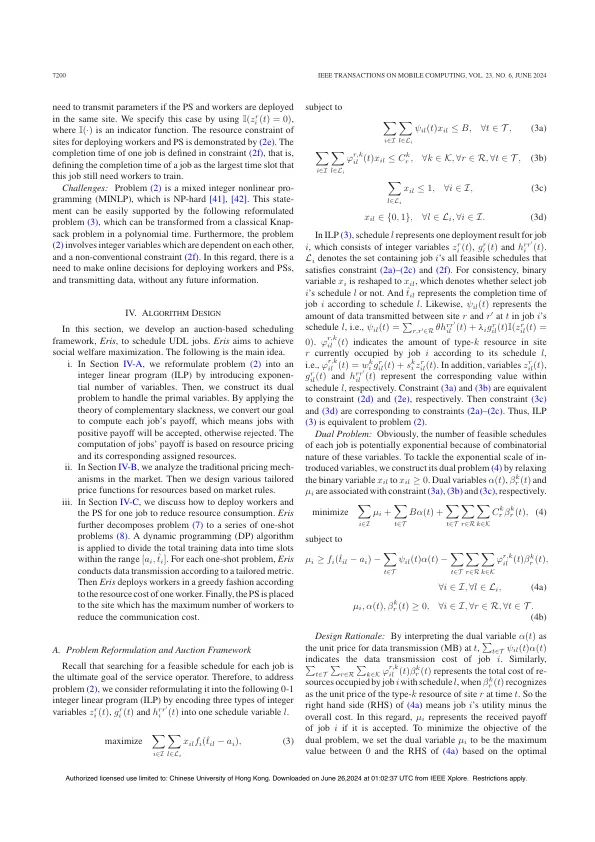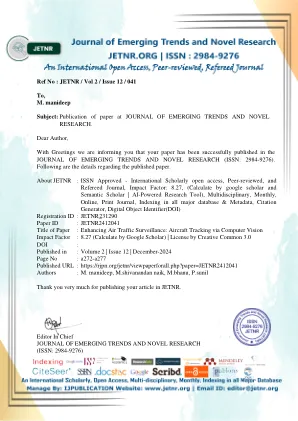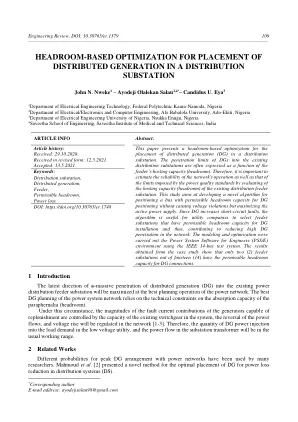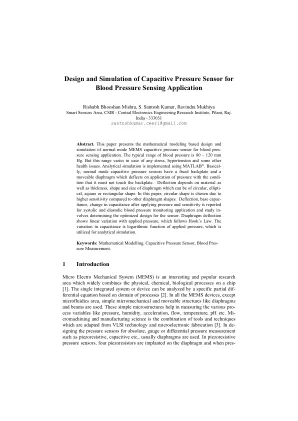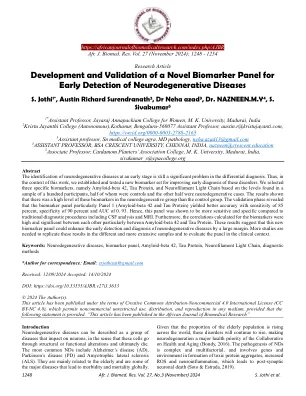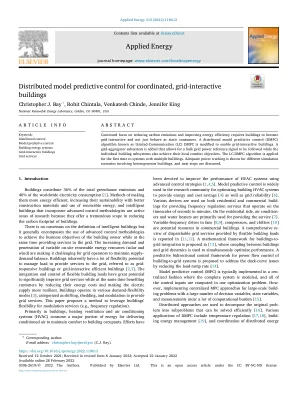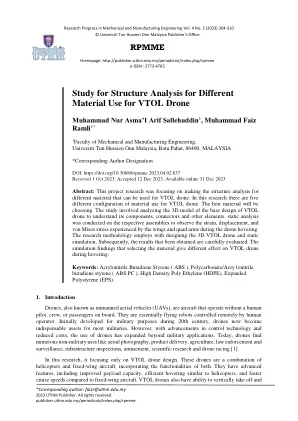机构名称:
¥ 1.0
摘要 - 边缘情报的出现使智能物联网服务(例如,视频/音频监视,自动驾驶和智能城市)成为现实。To ensure the quality of service, edge service providers train unbiased models of distributed machine learning jobs over the local datasets collected by edge networks, andusuallyadopttheparameterserver(PS)architecture.However, the training of unbiased distributed learning (UDL) depends on geo-distributed data and edge resources, bringing a new challenge for service providers: how to effectively schedule and price UDL jobs such that the long-term系统实用程序(即社会福利)可以最大化。在本文中,我们提出了一种基于在线拍卖的调度算法ERIS,该算法确定了每个到达UDL作业的数据工作负载,并发工人和PSS的数量和位置,并且基于当前资源消耗的基于当前资源消耗而动态价格有限。eris应用了一个原始的双重框架,该框架称为有效的双重子例程来安排UDL作业,实现了良好的竞争比率和伪多项式时间的复杂性。为了评估ERIS的有效性,我们同时实施了一个测试床和大型模拟器。结果表明,与当今云系统中的最新算法相比,ERIS优于表现和实现多达44%的社会福利。
eris:用于安排公正分布式的在线拍卖...
主要关键词

